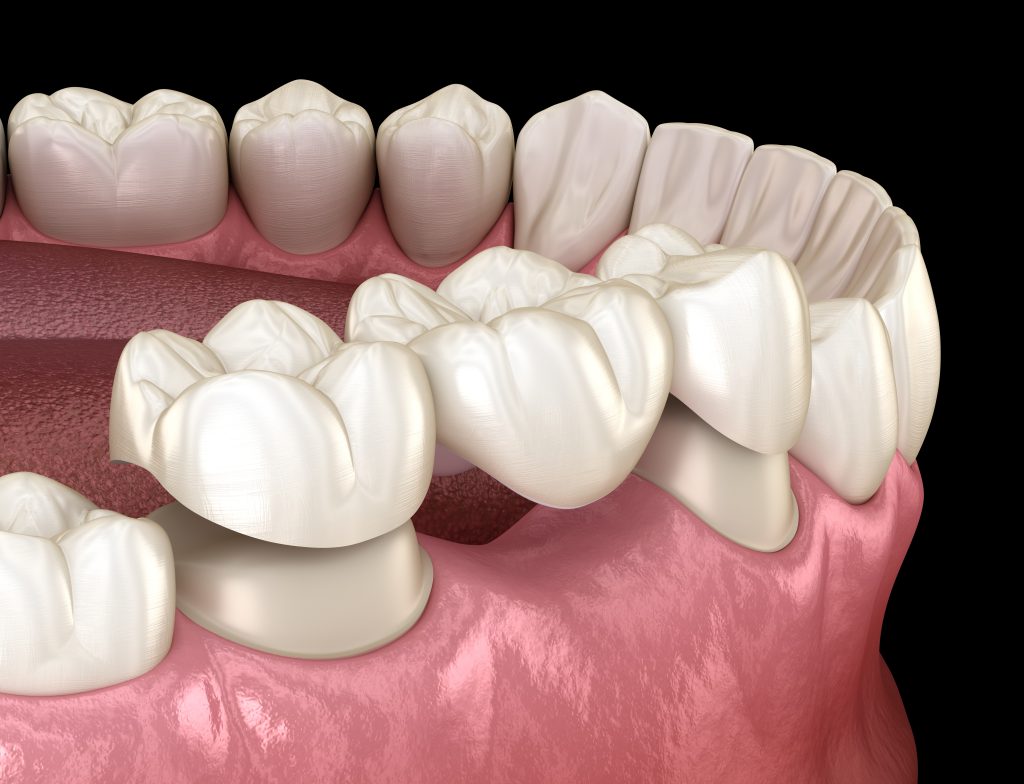
If you’ve recently gotten a dental bridge placed, you’re probably relieved to finally have your smile back and be able to eat the foods you like again. You should know that there are some small techniques you need to add to your oral hygiene routine in order to keep your replacement teeth and the rest of your mouth healthy.
We’ve noticed a misconception among patients that artificial teeth don’t need the same dental hygiene attention because they aren’t real teeth. This isn’t true! Germs can accumulate on crowns and bridges just like on natural teeth. Caring for your gums around your new teeth is especially important. If bacteria are allowed to linger on your gum line, it can lead to gingivitis and decay in the teeth your crown or bridge cover. So here’s a quick guide to how to care for your bridges in your dental routine.
Dental Bridge Oral Hygiene Tips
Most dental bridges look like three or four teeth fused together in a row. The teeth on the end are called “retainers”, and like regular dental crowns, they fit over existing teeth like a cap and serve as anchor points, or “abutments”, for the bridge. Between the retainers are one or two false teeth that bridge the gap where the missing teeth used to be. These bridge teeth are called “pontics”. Retainers and pontics require slightly different care.
To clean your retainer crowns, floss around the sides of them just like you would floss around your natural teeth. Gently push the floss between the crown and the neighboring tooth and back out again, forming a c-shaped curve with the floss as you go.
To clean a pontic, you may need a special tool in order to get the floss into the gap between the false tooth and your gums. Most drug stores and pharmacies will carry floss threaders or proxy brushes. Floss threaders have a stiff end that makes it easy to thread floss under your pontic. Proxy brushes look like tiny tapered pipe cleaners with a handle. Which tool you use may depend on how tight the space is between your bridge and your gums. Ease the tool into this gap and move it back and forth to dislodge any food particles and sweep away bacteria.
And, of course, brush your dental bridge and the rest of your teeth and use fluoride toothpaste and mouthwash as usual! Feel free to ask the dentist or the dental hygienist for a demonstration of any of these oral hygiene techniques at your next visit.
